Can Borax Powder Help with Pest Control? 5 Things
Have you ever heard of borax powder? Are you familiar with its potential in pest control? This blog post will explore the question: “Can Borax Powder Help with Pest Control?” We will dive into five important things to remember when using borax powder for pest control.
What is Borax powder?
Borax powder, also known as sodium borate, is a versatile substance used in various ways. It is a naturally occurring mineral found in many parts of the world, including the United States, Turkey, and China. Borax powder is a white, crystalline powder that is odorless and considered safe for household products.
One of the most common uses of borax powder is as a cleaning agent. It effectively removes stains and dirt from various surfaces, including carpets, upholstery, and clothing. Many people also use borax powder to clean their bathrooms and kitchens, as it removes soap scum, mold, and mildew.
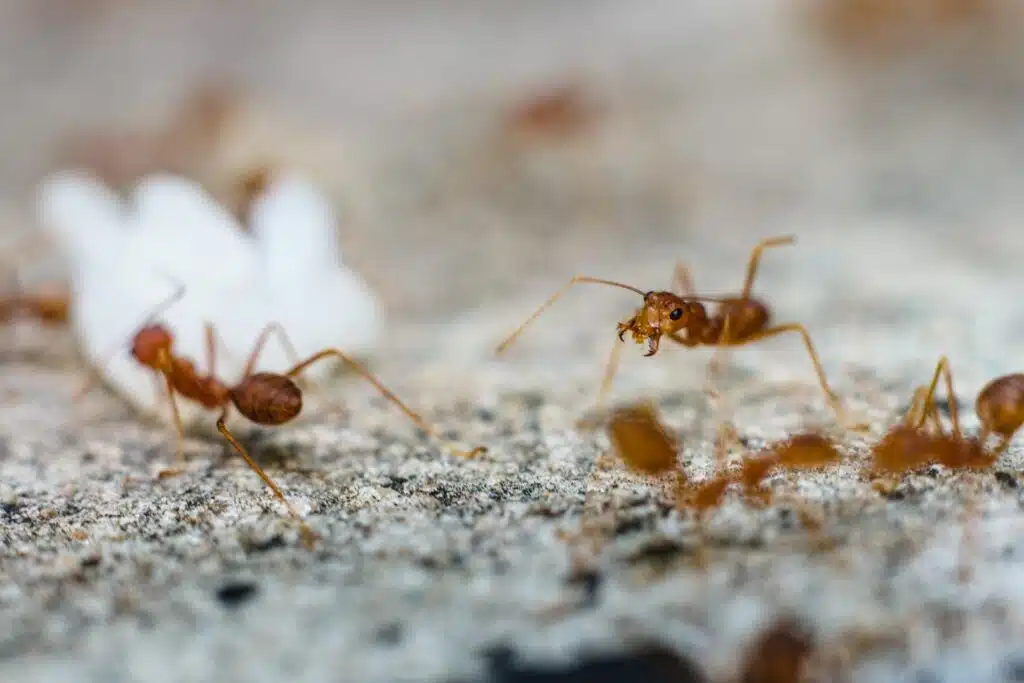
Borax powder also has unique properties that make it useful in other applications. For example, it can be used to make slime and other DIY projects. It can also be used as a metallurgy flux and fire retardant.
Borax Powder as Pest Control, How does it work?
Borax is a versatile substance that has become a popular choice for pest control due to its low toxicity and effectiveness.
Borax powder disrupts common commercial pests’ exoskeleton, such as ants, cockroaches, and silverfish. When these insects come into contact with borax, they stick to their bodies and get ingested during grooming. Once inside their digestive systems, borax acts as a poison, damaging their internal organs and ultimately leading to their demise.
How to use borax powder for pest control?
Its versatility as a pest control agent extends to these different insects due to its multiple modes of action. For ants and cockroaches, borax can be used as bait to attract the pests to ingest the substance and carry it back to their nests. This can effectively target the entire colony, making it an efficient solution for long-term pest control.
When dealing with silverfish and fleas, a simple application of borax can work wonders in areas where these pests are active. Silverfish prefer dark and damp environments, so applying borax to areas like basements, attics, and dark corners can deter their activity. Similarly, for fleas, treating carpets, rugs, and pet bedding with borax can help break the flea life cycle by dehydrating the larvae and pupae.
One of the advantages of using borax is its residual effect. Unlike some chemical pesticides that break down quickly, borax remains active for an extended period, providing ongoing protection against pests.
Is borax powder safe for humans and pets?
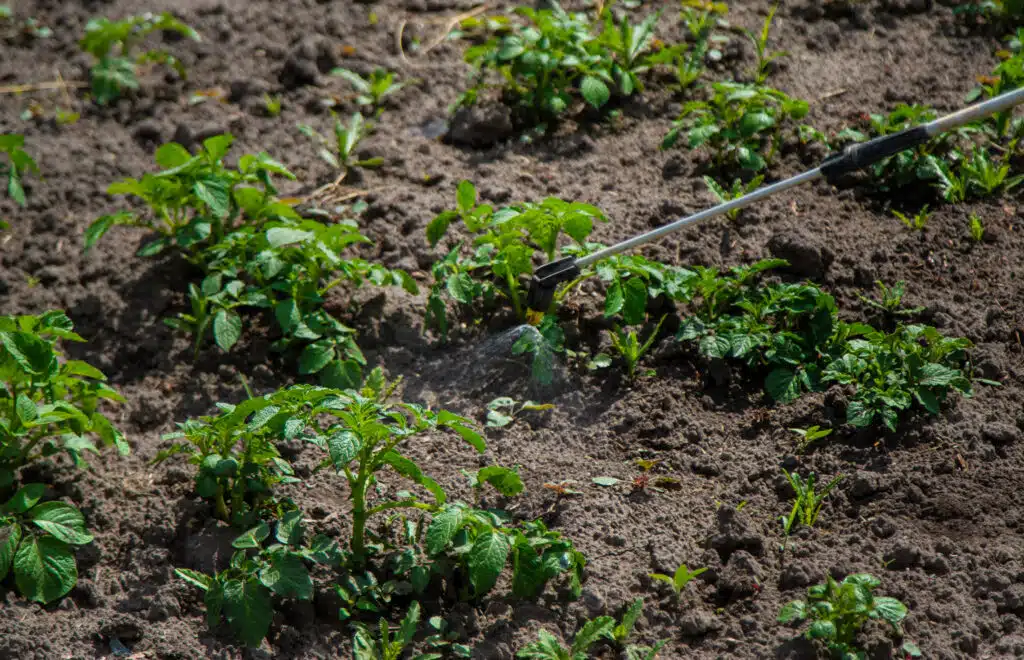
One of the advantages of using borax powder for pest control is its relatively low toxicity to humans and pets when used properly. However, it is crucial to exercise caution and keep it out of reach of children and animals. While borax is generally considered safe, ingestion in large quantities can cause gastrointestinal upset. Therefore, following the recommended guidelines and using protective measures when handling borax is essential.
Are there any limitations to using borax powder?
While borax powder can be an excellent pest control solution, it may not suit every situation. Some pests, like termites or bed bugs, may require more targeted and specialized treatments. Additionally, excessive use of borax in certain environments may harm beneficial insects or plants. Assessing the specific pest problem and considering alternative methods if necessary is crucial.
Borax powder is a versatile substance with many applications, from cleaning and laundry to pest control and even as a flux in metallurgy. However, like any other substance, there are limitations to using borax powder that you should be aware of.
One of the most significant limitations of borax powder is that it can be toxic if ingested in large amounts. While borax is generally considered safe to use in small quantities, it can cause serious health problems if consumed in larger doses. Symptoms of borax poisoning can include nausea, vomiting, abdominal pain, diarrhea, headache, and even seizures or coma in extreme cases.
Another limitation of borax powder is that it can be abrasive and damage some surfaces. For example, using borax to clean delicate fabrics or surfaces can cause them to become discolored or even damaged. Additionally, using borax on certain metals can cause them to corrode or become pitted over time.
Borax powder is also not suitable for use on all types of pests. While it is effective against many common household pests such as ants, cockroaches, and fleas, it may not be as effective against larger pests such as rodents or snakes. Additionally, some pests may develop a resistance to borax over time, making it less effective as a long-term pest control solution.
Finally, it’s worth noting that borax powder can be harmful to pets and wildlife if ingested. If you have pets or live in an area with wildlife, taking precautions when using borax is important to avoid accidental animal ingestion. Or much better to ask for help from professional pest control to ensure the safety of your pets and the surrounding wildlife. Pest control cost is worthy to protect the well-being of your pets and the environment.
Related Articles
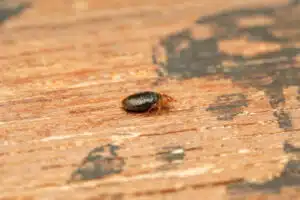
Tick vs. Bed Bugs: Differences and Similarities
Understanding the differences between two common blood-sucking pests, ticks and bed bugs, is important. We want to make sure you know exactly what kind of pests you’re dealing with,
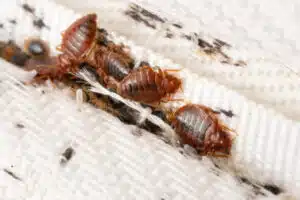
Where Do Bed Bugs Come From, and How to Prevent Them? A Guide for Salt Lake Residents
Bed bugs can be a major nuisance and cause various physical and emotional problems, including skin irritation, anxiety, and sleep disturbances. In Salt Lake City, bed bugs are a growing concern, especially in apartment buildings, hotels, and other high-density living spaces. But where do bed bugs come from, and how can you prevent them from infesting your home or property?
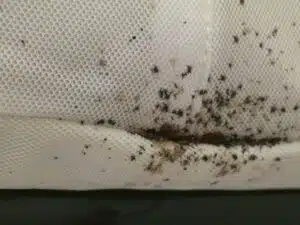
Are All the Tiny Black Bugs in My Bed Bed Bugs?
Sleeping is one of the things that we look forward to after a very long day. We recharge ourselves by sleeping by the end of the night to be refreshed the next day. But we can be disturbed even during our sleep by pesky pests crawling and hiding where we sleep. That’s terrifying, right? Pests that are known to annoy us during our sleep are bed bugs. They are usually found where humans and other pets sleep. Bed bugs can be almost anywhere in the world – even in your Saltlake home! They can be annoying because they suck your blood and leave you with an itch and bumps in the infected area. So blood attracts them, even the blood of other animals. Therefore, you should conduct bed bug removal if you have them. If you find bugs on your beds, you might think they are bed bugs. But are they?
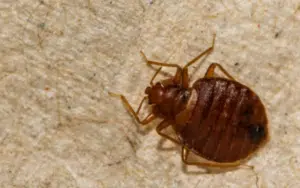
Can Bed Bugs Live in Your Car?
Bed bugs are small, flat, and oval-shaped insects that feed on the blood of humans and animals. During the day, bed bugs hide in cracks and crevices around beds, furniture, and baseboards. You can also find them in mattresses, bed frames, blankets, carpets, and other fabric items throughout your home. While it is possible for bed bugs to infest your car, they’re less likely to do so than inside a house or other structure.
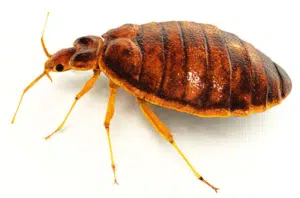
How to Find Bed Bugs in Your Home
Bed bugs are small, blood-sucking that feed on human and animal blood. They belong to the family Cimicidae, contain over 100 species, and have been around for millions of years.

Can Bed Bugs Jump?
Bed bugs are a common household pest that can be difficult to get rid of. These tiny insects can live in any crevice or crack in your home and feed on blood.
